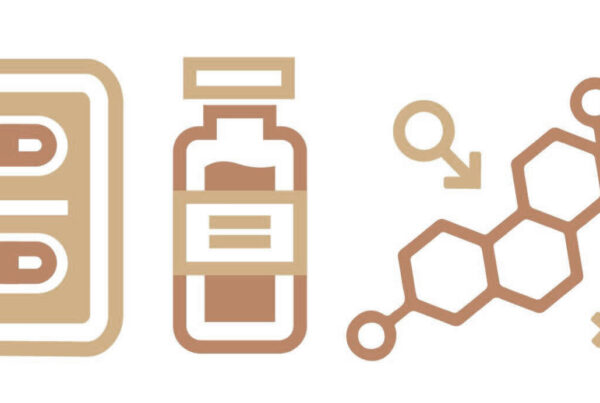Hormone replacement therapy can positively impact an individual’s health, but patient beware: not all hormones are created equal. Bioidentical hormones, the ones I use with my patients, should not be confused with procedures that use synthetic hormones, which are riddled with side effects.
Even with a safe, physician-prescribed bioidentical hormone replacement therapy program, there are both risks and rewards:
The Rewards of Bioidentical Hormones
Tested and Safe
Whether it’s lowering blood pressure, assisting with weight loss or regulating the thyroid, bioidentical hormone treatments can help to improve a person’s overall health. Unlike traditional synthetic hormones, bioidentical hormones are natural, which mitigates the danger associated with undergoing treatment.
Designed for Optimal Health
The safety of bioidentical hormone therapy is in and of itself, a considerable benefit, but it is not the only one. Whereas synthetic hormones are used only until the patient reaches “normal” levels, bioidentical hormones allow patients to reach optimal levels. This means achieving optimal health, not just average health.
For example, traditional testosterone replacement therapy for a 50 year old male would attempt to restore the body’s testosterone levels to where a 50 year old male’s usually are. But because bioidentical hormones can be taken for prolonged periods without side effects, the patient’s testosterone therapy can take their levels to the optimal range – the normal range for 20-30 year old males.
The same optimization can be achieved for various vitamins and minerals. Rather than therapy allowing patients to meet the Recommended Daily Allowance, natural replacement techniques can raise levels to two or three times the minimum allowance, optimizing health, not just regulating it.
The Risks of Bioidentical Hormones
Bioidentical hormones lack the potential side effects of synthetic hormones, but can still cause harm if not properly regulated. The potential harm of the treatment lies in dosage. If levels are set too high or too low, adverse effects may be produced.
Dosage Risks
For example, if a 50 year old male undergoing testosterone therapy doesn’t get his levels up, he may suffer from symptoms such as weight gain and muscle loss. If his levels go too high, it may increase his aggression. Other hormones can cause different effects, but finding the optimal level is always the key to avoiding negative impact.
Bioidentical hormones are safe when properly regulated to optimal levels. Ensuring that this is the case is a matter of relying on a doctor who is fully knowledgeable in the specialty of hormone treatment.





